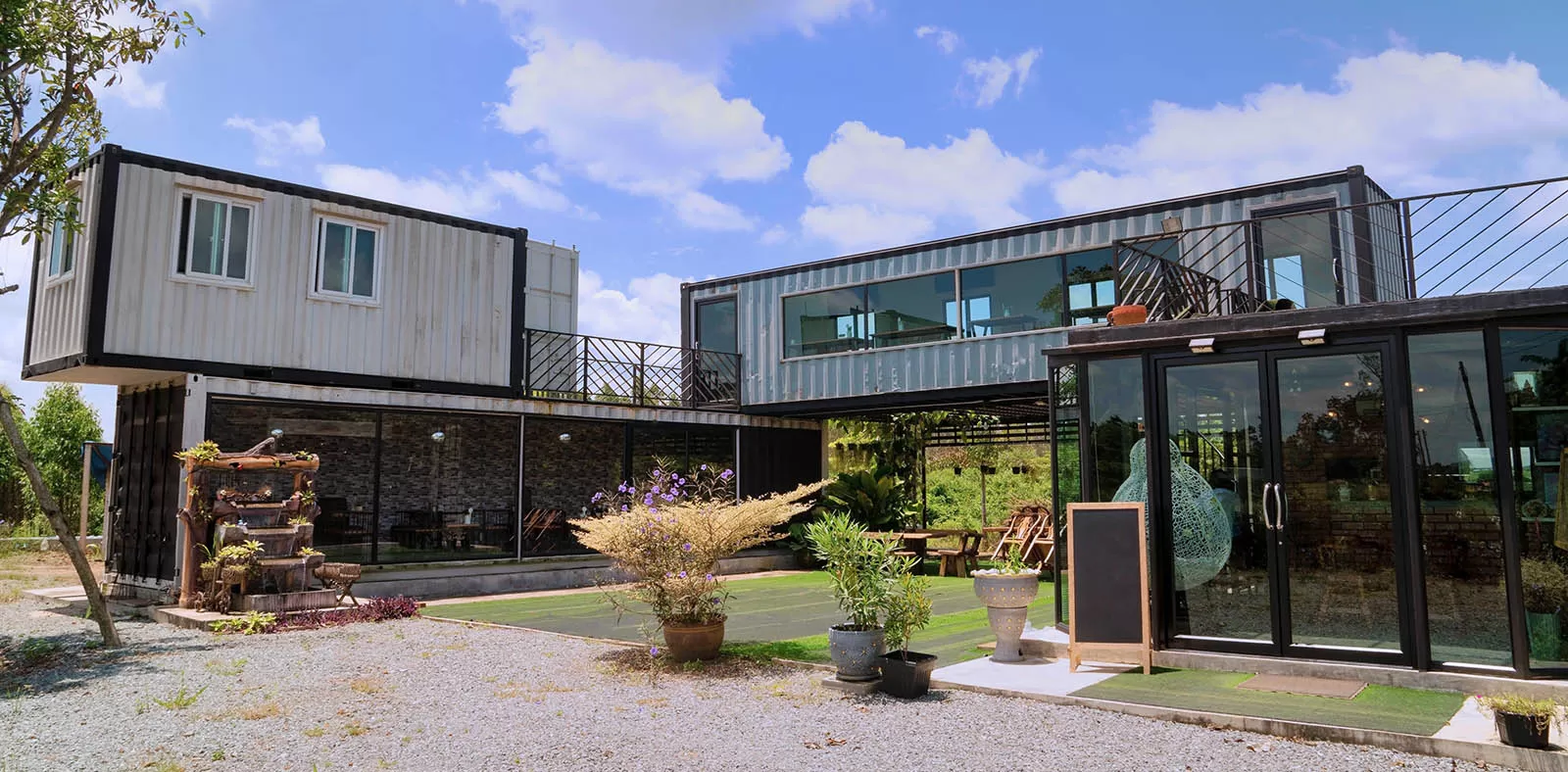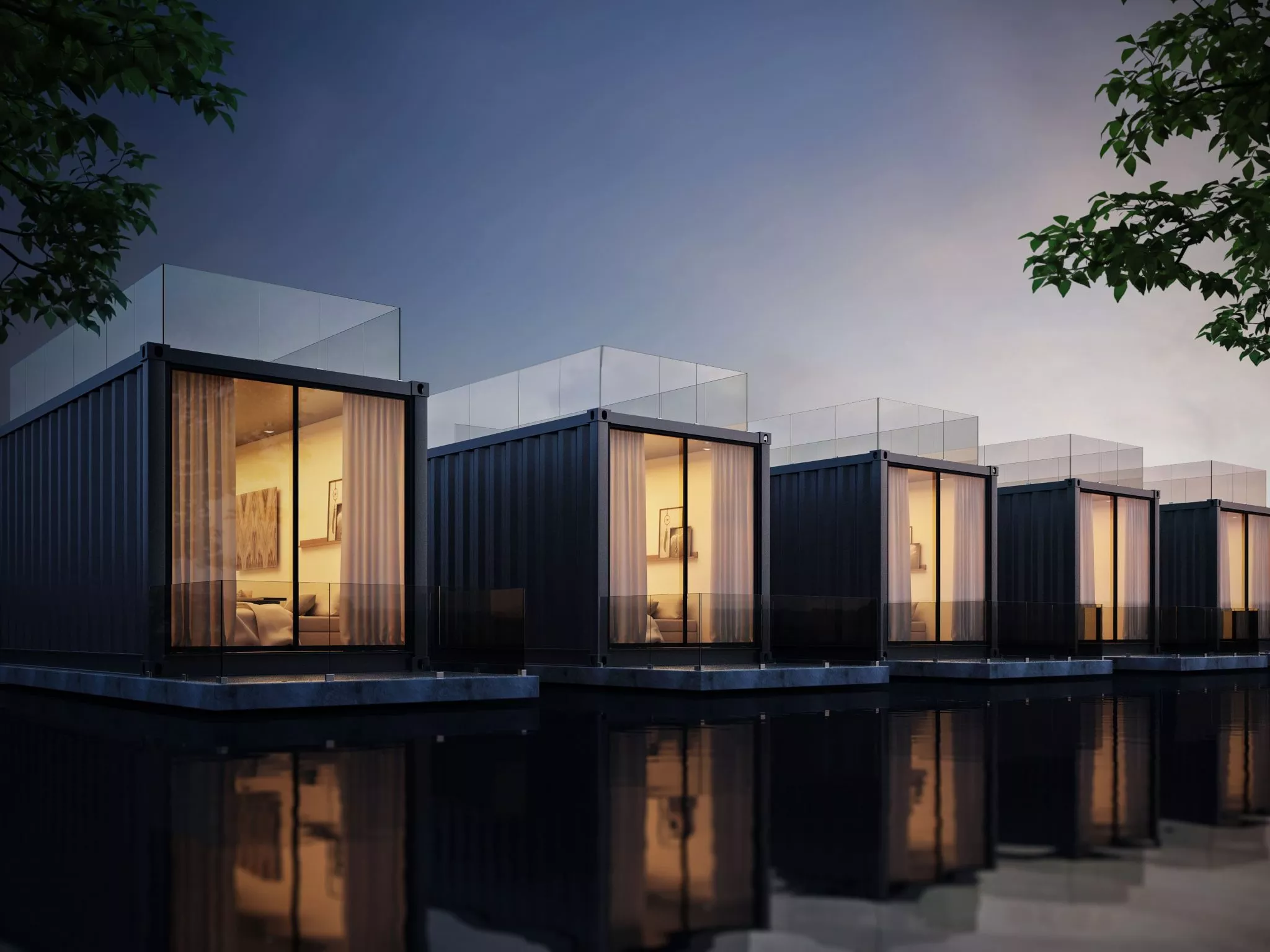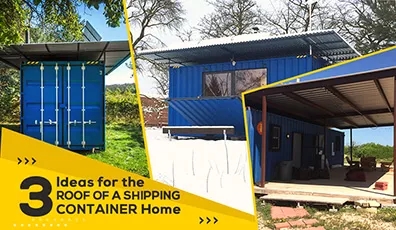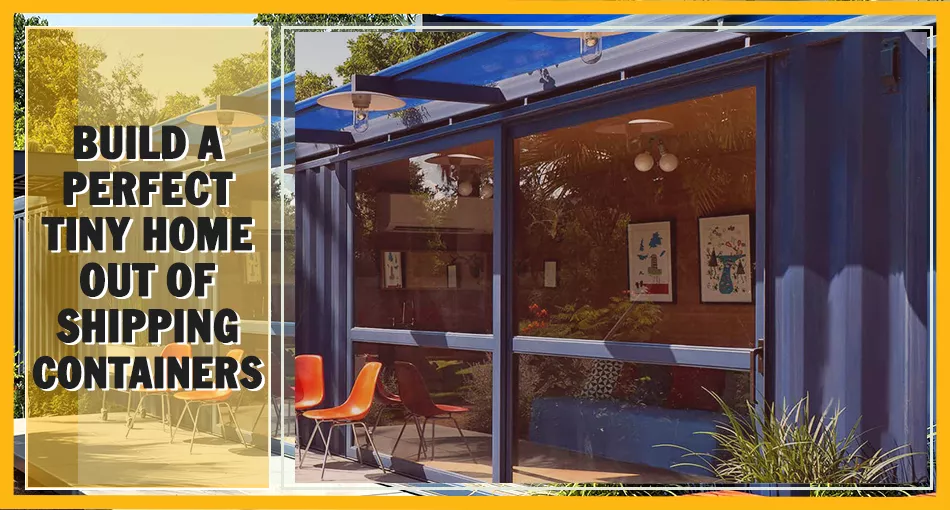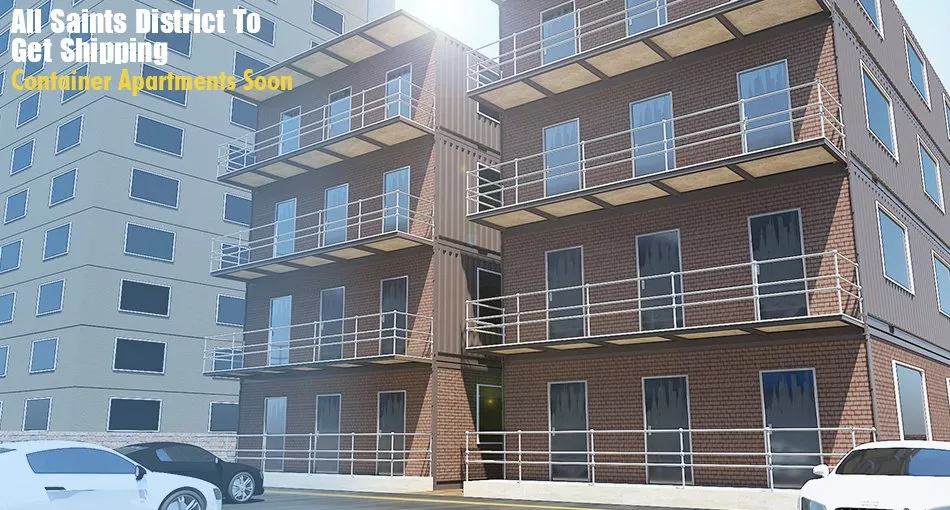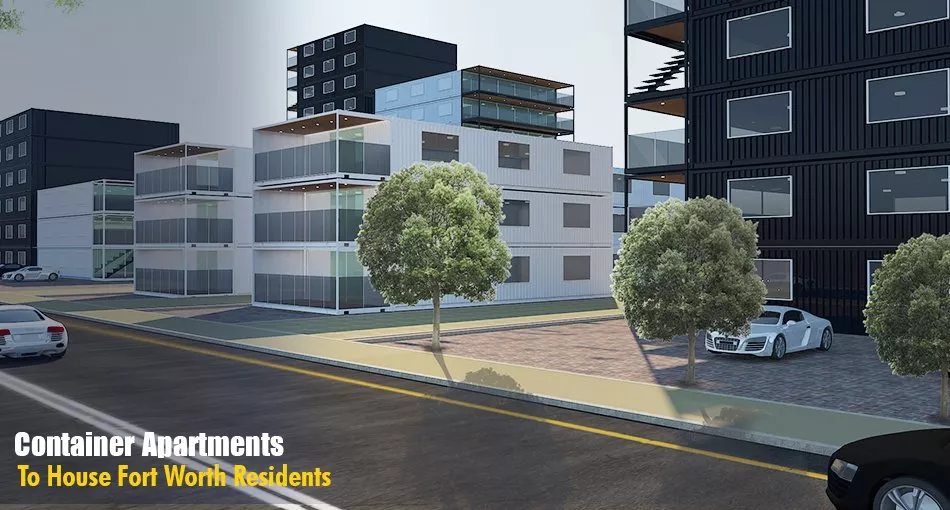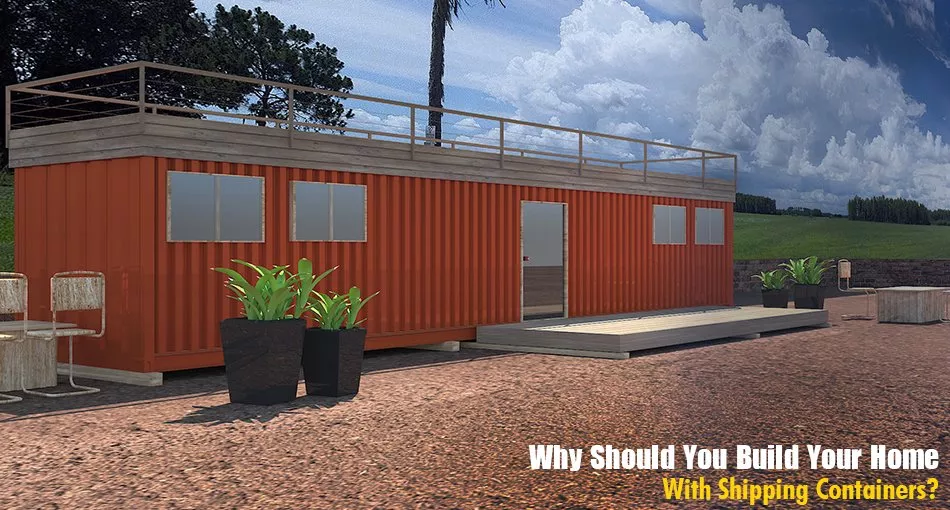How Can You Have a Shipping Container on Your Property

🎧 Listen while you read — this episode covers zoning, permits, and rules for having a container on your property.
Today, shipping containers are popular beyond their intended use. With multiple design ideas and extraordinary use alternatives available, there is still one question every future container owner asks themselves. Can I simply put a shipping container in my backyard?
In most cases, the answer is “yes, you can place a shipping container in a backyard.” However, the reality might be a bit more complicated since US laws impose certain restrictions on the placement and use of shipping containers on private land. So, it won’t go amiss digging into federal and state legal requirements and municipal government regulations before you locate a cargo unit in your yard or garden.
Rules and Regulations for a Shipping Container Property
Purchasing a shipping container is not enough to realize a dream project or creative idea you have in your mind. There is a layer of formalities and legalities to observe for legally putting shipping container buildings on private property without breaking any rules.
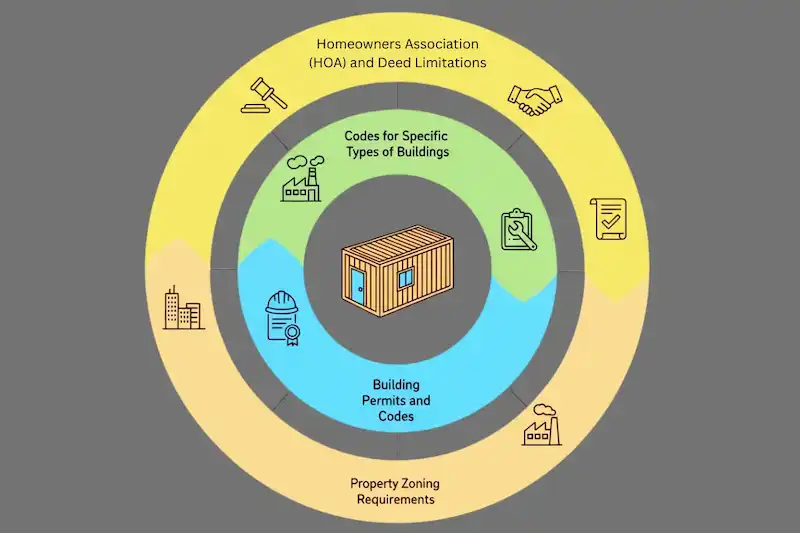
Usually, each jurisdiction and municipality has its own requirements for cargo container structures. Even small towns, communities, and neighborhoods have their own restrictions. At the same time, basic regulations remain the same across different localities and include:
- Property zoning requirements: Used to separate business, residential, and industrial areas and efficiently plan city development. Zoning restrictions are applied to all types of structures and buildings and might greatly vary by the municipality.
- Building permits and codes: While building codes determine the construction standards, building permits make sure those standards are met and maintained for specific objects. For cargo container construction, you’ll need some form of permission as well.
- Codes for specific types of buildings: Mobile and prefab houses are regulated a bit differently than ordinary houses. To distinguish them is not easy, yet, you can ask for a manufacturer description to understand if some of those specific rules relating to your shipping container structure.
- Homeowners Association (HOA) and Deed Limitations: While the above-stated rules are statutory, you must also adhere to some community or HOA requirements. They might cover both statutory regulations and restrictions on individual matters, such as those outlined in private deeds and real estate transactions.
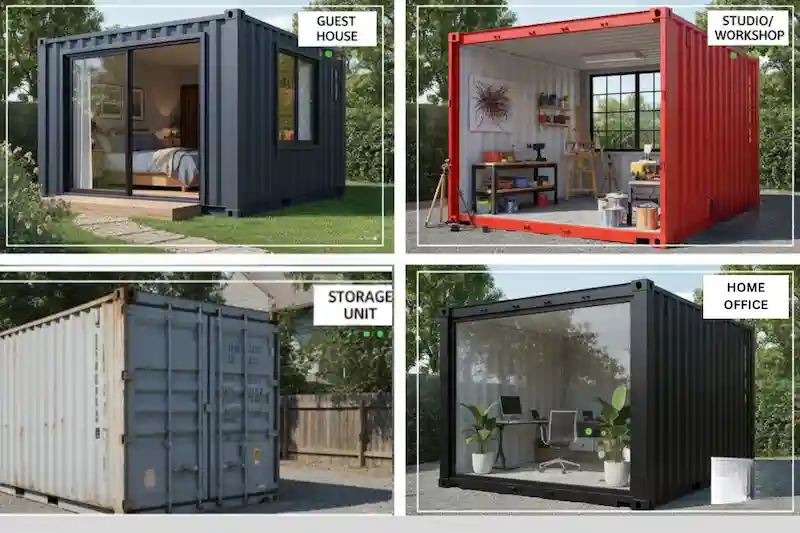
Types of Shipping Container Building on Your Property
To answer the question “Can I have a shipping container in my backyard?” you should not only look into appropriate codes and regulations, but also understand its future use. Notably, which rules to observe will also depend on your container’s purpose.
Thus, you can convert a shipping container into a studio or workshop, make a greenhouse or garage out of it, turn it into a guest house, home office, or man cave, or simply use it as a shed or storage unit. Each of those cases will entail different regulations, whether you use a container for storage or housing purposes.
Some of the restrictive factors affecting the use of a shipping container on private property include:
- Container size: Some localities have strict restrictions on container structure height and area (in sq. feet) to be put in your yard or garden;
- Container location: Local rules and HOA regulations often stipulate the exact spots where you can and cannot place a container fixture on your land plot;
- Appearance: Local authorities often limit the use of shipping container structures on open plots not surrounded by fences or somehow detached from the neighbors. In this case, a bulky unit will become an eyesore for other people.
Besides, you can’t use a container on your private land for any possible purpose. Some uses might appear illegal. Closely monitor local regulations to clarify those points.
Tips on How to Get a Shipping Container Permit on Your Property
Do you need a permit for a shipping container? While you don’t need any document to buy it, most likely, you will need some kind of permit to place it on your land. In most cases, those permissive papers are pretty simple, easy to get, and won’t cost you a fortune.
The type of permit you need, though, depends on the type of container, the purpose you use it for, and the area you place it. So, here are a few quick tips that make it easier for you to get the required documents.
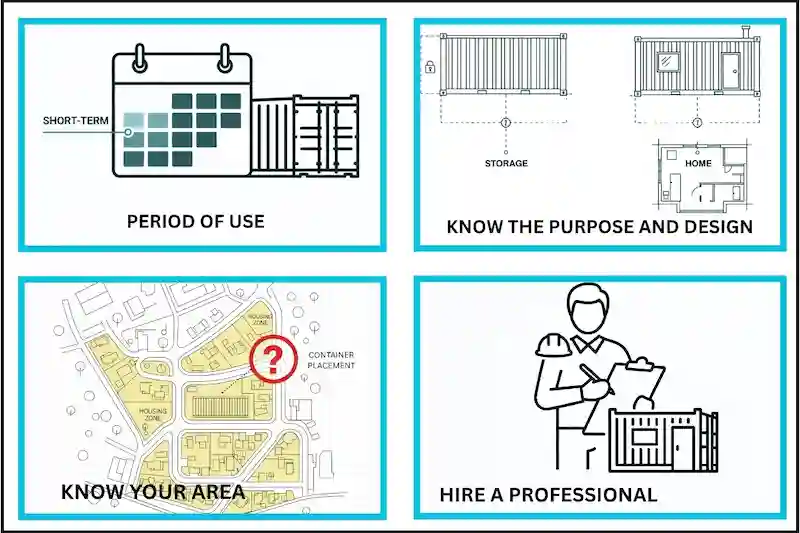
Tip #1: Consider the Period of Use
The shorter the period of container use, the fewer rules you’ll have to stick to. If you plan to use a container as a temporary structure, you’ll either need a temporary use permit or no permit at all. A permanent container structure, on the other hand, will require a building permit.
Tip #2: Know the Purpose and Design
The intended use will help you quickly detect appropriate regulations. In some states, you can freely have a storage container for about a month without any permissive documents at hand, while more extended use will call for minimum paperwork. Meanwhile, you’ll have to observe zoning and building codes accordingly when putting a container as a dwelling.
Tip #3: Know Your Area
Many jurisdictions have strict requirements for high-traffic areas with high housing density and open-plan plots located close to the city center and business districts. Getting permits for these kinds of areas is quite tricky. Yet, if you reside in a low-traffic community and can place a container out of sight, your chances of getting a permit highly increase.
Tip#4: Think About Hiring a Professional to Help
If you are unsure whether you can handle shipping container regulations, consider hiring a permit expeditor, especially if you live in a big city. Not only will an expert help you communicate with local authorities, but also they will do most of the legwork for you.
Final Thoughts
Subject to complying with local regulations and having the required permissive paperwork in place, you can use a shipping container on your private property for many different purposes. Just make sure you are aware of all the rules you need to follow.

And if you want to buy a shipping container at the right price, you’ll hit the spot by contacting Pelican Containers. Whether you seek shipping containers for industrial use or shipping containers for retail business, we have them all. We sell new and used units of all sizes and deliver across the US. Feel free to contact us to get a quality piece for your pending project quickly.
Are You Looking To Buy A Shipping Container? 3 Things To Save on Those Hidden Costs
When you are looking to buy a shipping container you would of course look into its quality and build but these are the 3 hidden elements – delivery location, grading, and taxes, that add a lot to the final cost of a container. Pelican Containers is one of the leading traders of shipping containers and we are here with a mission to take the pain out of buying a shipping container.
Vanessa is a dedicated writer and content enthusiast at Pelican Containers. With a background in practical writing and a keen eye for clarity, she transforms complex container topics into easy-to-understand and useful content. Her passion lies in exploring the evolving world of container usage — from smart storage hacks to global logistics trends.
When she's not writing, Vanessa loves discovering creative shipping container projects or traveling to find new inspiration.
Explore thoughtful, informative, and accessible content with Vanessa!
Vanessa is a dedicated writer and content enthusiast at Pelican Containers. With a background in practical writing and a keen eye for clarity, she transforms complex container topics into easy-to-understand and useful content. Her passion lies in exploring the evolving world of container usage — from smart storage hacks to global logistics trends.
When she's not writing, Vanessa loves discovering creative shipping container projects or traveling to find new inspiration.
Explore thoughtful, informative, and accessible content with Vanessa!
FAQ
When is it necessary to get a permit for a shipping container on private land?
Actually, you’ll need a permit for a shipping container on your property most of the time, even if you use a container as temporary storage. Storage container zoning rules and shipping container codes of law can significantly vary by jurisdiction, so contact your local authorities for the requirements valid in your area.
Can I put a shipping container on any residential property?
Basically, yes. However, dwellings in crowded areas and close to the city will face more restrictions as regards the use of a shipping container.
Does a shipping container's position on the land lot matter?
In some situations, it does. Many states have visibility requirements stipulating that a container should not be visible from the street and should be placed deep in the yard or behind the house.





